Do you ever wish you could rewind to a time before technology had intertwined itself into every corner of our lives? If you do, I’m guessing that you remember a time before iPads were invented. The younger generation can’t imagine a life without widespread tech but we can! It can be easy to focus on the negatives but there are so many benefits to be grateful for.
Technology is essentially a tool and we need to teach kids how to use it safely and productively. It’s a little like handing your child a saw, definitely not a good idea too young, better supervised, potentially dangerous but when properly instructed, they could use it to build and create something beautiful and long-lasting.
So here’s a list of a few ways you could use technology to Islamically educate your family. If you can think of any more, please share in the comments section!
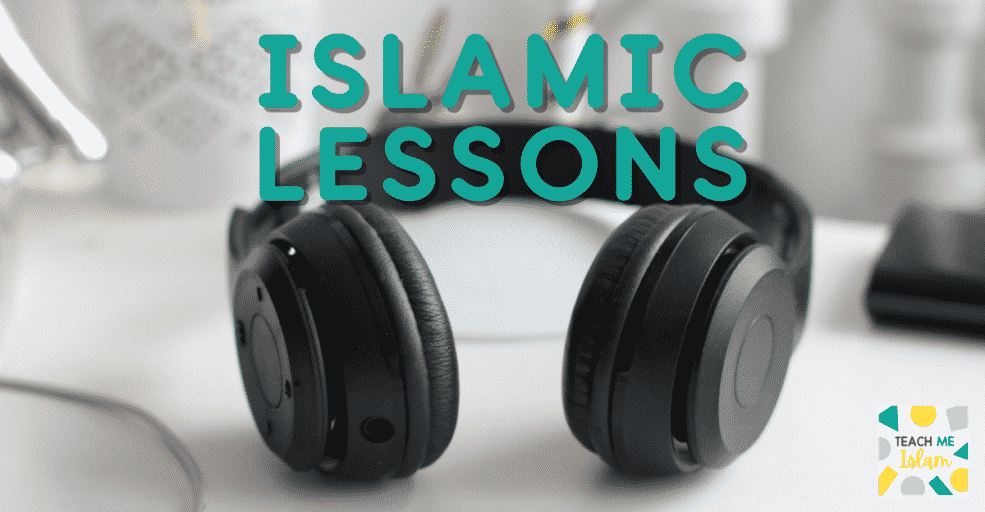
Islamic Lessons
Islamic lessons used to be held in masaajid, schools and universities and if you didn’t attend in person, you missed out or would have to grab recordings (on cassette, or cd!) which were often not available. However, now you can listen to talks, reminders and entire courses for free from the other side of the world. It isn’t a substitute for attending in-person classes, there are so many advantages to actually sitting with a teacher but it’s an incredible alternative for when that’s not possible.
It is especially great for mothers who can’t always get child-care in order to attend in person. You can also listen to talks while doing other tasks, like household chores, driving, and feeding a baby which means you can be learning and benefitting all day long. Wireless headphones or earbuds are brilliant for listening while moving around your house. Pro-tip, listen on one side only so you can hear any household noises that need your attention….or even worse…suspicious silence.
I really recommend the following Spreaker channel for a variety and comprehensive range of classes and courses for free. Your teenagers especially may benefit from the Ramadan lessons including short lessons on tajweed, Arabic, tafsir and hadith. Many of the lessons have an accompanying workbook which is great for anyone but especially teens who may be new to note-taking.
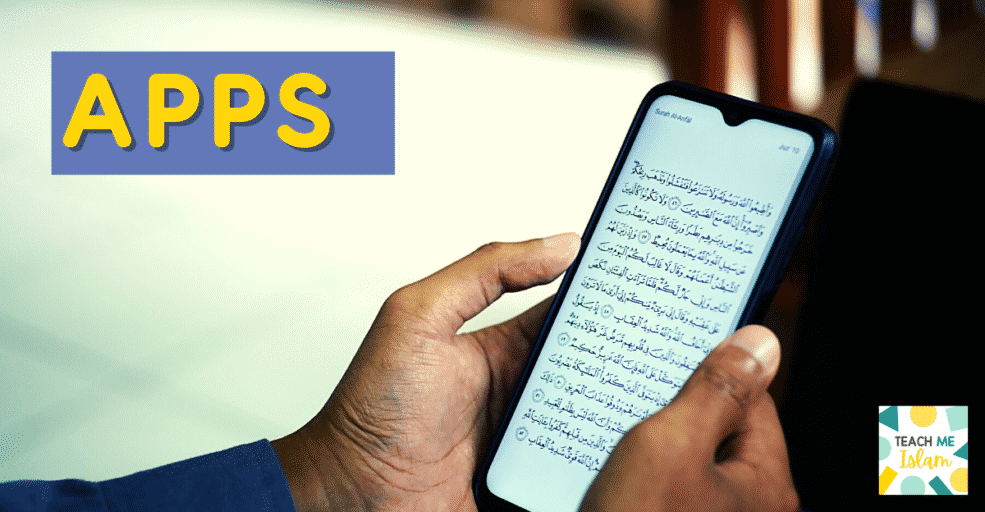
Apps
Islamic education apps have really come a long way. Most Muslims with a smartphone have a Qur’an app installed. They can really help with quickly discovering the meaning of a word, its Arabic root, or the tafsir of a verse. The days of rewinding a tape to repeat a line you are trying to memorise seem now a distant memory! Again, these are no substitute for a teacher but they are so convenient and helpful when you are practising your homework.
As such, the Qaida Nooriniyah app is brilliant. Kids can listen to the correct pronunciation repeatedly, choose how many times to repeat words and follow along the page as it is read to them. Here’s the link to the app in the Apple app store, and Play store. (Not sponsored by or affiliated with this app, I just recommend it).
Athkar apps are also great for practising pronunciation and helping memorization.
There are also apps with the text and audio of famous works like Usool At-thalatha and the 40 Hadith of Imam Nabawi. Listening to the audio and reading the text at the same time really makes memorisation easier.
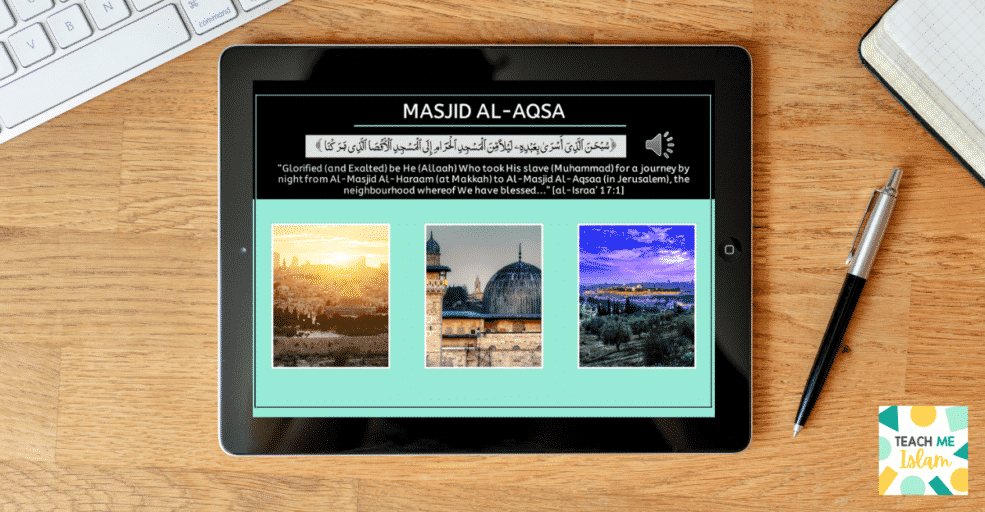
Interactive Learning
When the Covid pandemic meant that all education moved online, teachers around the world created innovative ways of engaging their students. One of the ways was using interactive presentations that included a variety of multimedia such as video and audio and also included in-built questions checking students’ understanding. We can apply these methods to Islamic topics to teach kids about important topics in a way that makes them excited to learn.
Virtual field trips are a great example of this. Students take a ‘trip’ to a destination, look at images and watch videos of different sights and learn facts about it. If you would like to see an example, you can download a free Masjid Al-Aqsa Virtual Field trip here. It includes a presentation, self-checking google form quiz and worksheets. Or if you are an e-mail subscriber, simply visit the Free Resource Library to download your copy.
There are field trips to Makkah and Madinah available in my shop. They are also included as part of the Arabian Peninsula Unit Study.
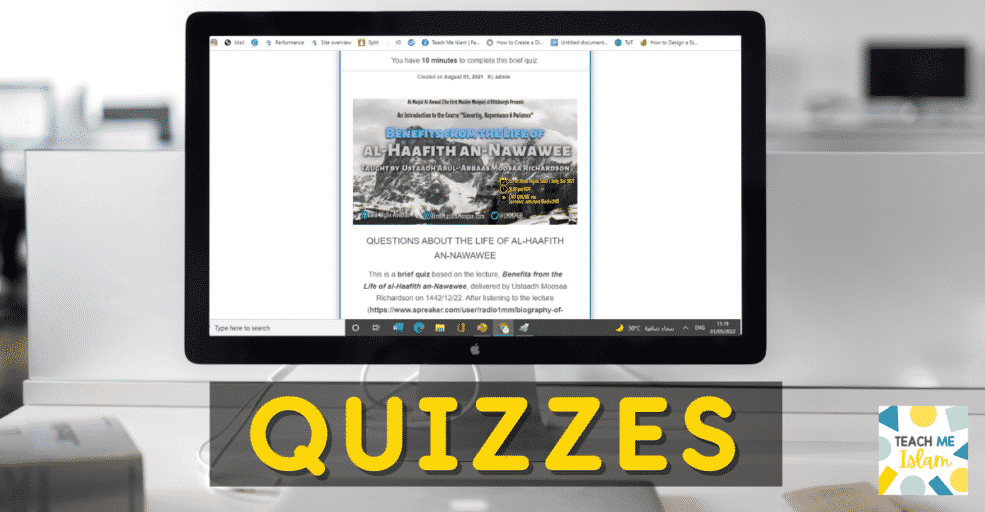
Self-checking quizzes
Parents are juggling a lot and homeschooling parents often have several kids requiring their attention. Any task that can be automated is always helpful and quizzes that check for understanding and memorization can be a great help. You can make your own on an online platform like Kahoot! or make one in a google form. There are wonderful examples of google quizzes related to an Islamic course of study here.
Kahoot has the added benefit of being great for kids to play against each other. The competition element can be a great motivator!

Community and Support
Have you heard stories of people entering Islam in places where they are absolutely no Muslims? Sunhanallah, they read online about Islam and became Muslim without any community at all. They then gain online support in their journey and technology is a real blessing to them.
Similarly, educating your child Islamically can feel lonely if you haven’t got support or a local community. Technology can help connect you to others trying to achieve the same goals and their advice and motivation can be really beneficial. When creating the African and Arabian Peninsula Unit Studies, I ran study groups of messaging apps for a limited period. A lot of sisters commented on how seeing the beautiful work of other homeschooling families helped motivate them to start or complete the lessons. Plus it encouraged the children when other mothers commented on and praised their work! Even a temporary online community helped to make a difference walhamdulillah.
If you are looking for structured support, Happy Muslim Homeschool offers help for homeschooling mothers here.
A Muslim Homeschool runs a course for homeschooling mothers that you can learn about here. She also launched a membership for Muslim mothers about parenting called Mums Unstuck, all the details are here.
Technology: help or headache?
I hope this post has given you some ideas of how to use technology for Islamic Studies. It’s great to incorporate it into your programme of study so kids can see how they can use their devices to benefit. It’s a lifelong skill we’re trying to develop. We’ve all had to learn how to manage technology in our lives so that it works for us, not the other way around! It’s a continual learning process. May Allah guide us to use our blessings for good and eternal benefit.
Join the mailing list here to download a biography pack about one of the Noble Companions promised paradise, Abu Ubaidah bin Jarrah (may Allah be pleased with him) and gain access to the free resource library
Here are some other blog posts you may be interested in:
How to teach Islamic content all day long





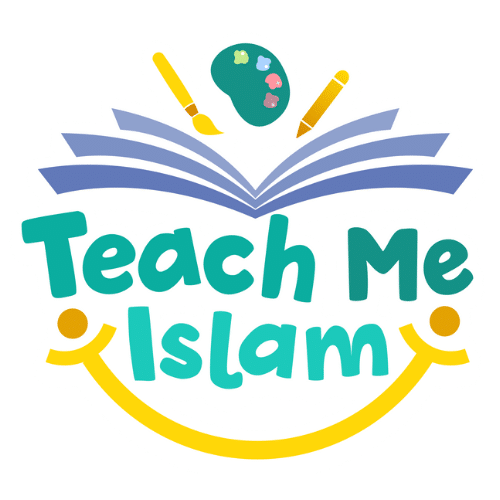
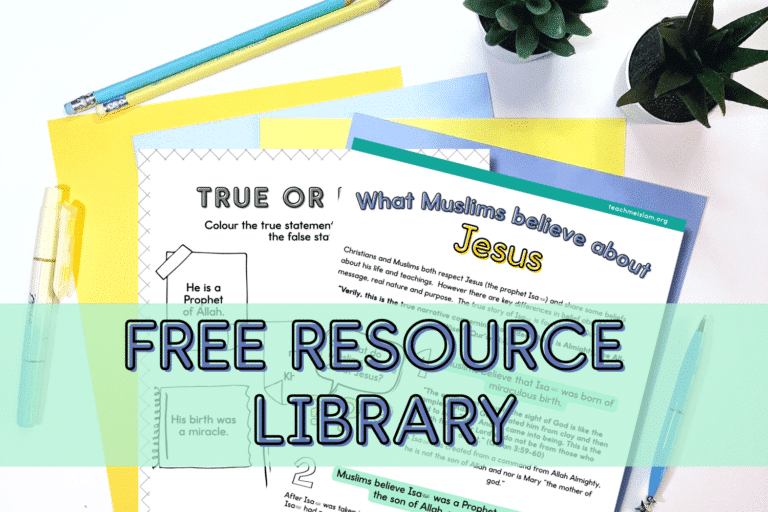
One comment
What a great post and reminder allahuma baarik! I definitely agree with your advice. Reminder to ourselves first as adults!